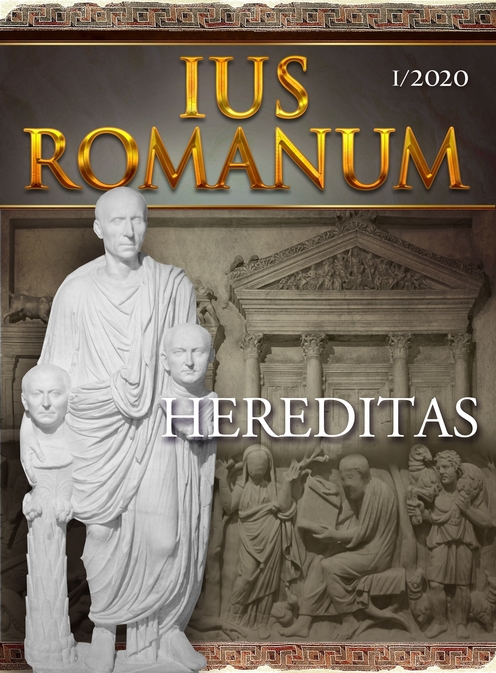ФИДЕЙКОМИСЪТ ИЛИ ДОВЕРЯВАНЕТО НА ДОБРОСЪВЕСТНОСТТА НА НАСЛЕДНИКА
FIDEICOMMISSUM OR THE ENTRUSTING TO THE FIDELITY OF THE HEIR
Author(s): Margarita FuentesecaSubject(s): Law, Constitution, Jurisprudence, History of Law, Civil Law
Published by: Софийски университет »Св. Климент Охридски«
Keywords: fideicomissum; mancipatio familiae; testamentum; heredis institutio; legatum
Summary/Abstract: The original designation as heir in Roman Law was a fideicommissum, because the testator entrusted to the person chosen as heir the acceptance of the inheritance. The most ancient form of testamentum was the mancipatio familiae, which was performed in two solemn acts. One consisted in a simulated sale of the familia, whose aim was to declare formally and publicly how the pater familias wished the division of the patrimonium into legacies to be done, and the designation of the heir. The second act consisted in offering, after the death of the testator, the inheritance to the heir, whose only fiduciary duty was to accept it. After the decline of mancipatio familiae, the validity of the testamentum requires two essential elements: the designation of the heir, and his later acceptance.
Journal: IUS ROMANUM
- Issue Year: 2020
- Issue No: 1
- Page Range: 138-156
- Page Count: 19
- Language: Bulgarian

